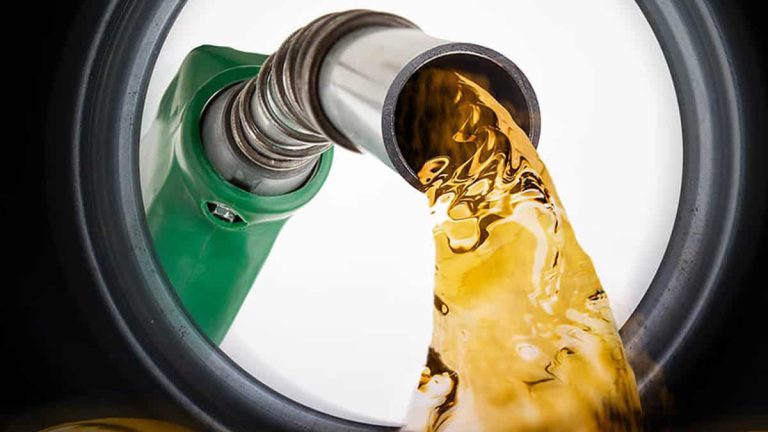Petrol prices in Pakistan are subject to a myriad of factors that impact the nation’s economy and affect consumers’ daily lives. Understanding the intricate interplay of these elements can empower individuals to make informed choices and policymakers to devise effective strategies to manage petrol prices more efficiently. Below are some of the major factors that influence the prices of petrol in Pakistan
Causes of Increase in Petrol Prices in Pakistan
Depreciation of the Pakistani Rupee:
The exchange rate between the Pakistani Rupee and the US dollar plays a pivotal role in determining petrol costs. As crude oil prices are usually quoted in US dollars, a depreciation of the Pakistani Rupee against the dollar translates to increased expenses for importing crude oil. Consequently, this contributes to a surge in the price of petrol in Pakistan. Moreover, factors such as inflation rates and changes in international trade policies can also influence exchange rates and, in turn, affect petrol prices in the country.
Taxes and Levies:
The government of Pakistan employs taxes and levies on petrol as a primary means of generating revenue. These fiscal measures, encompassing excise taxes and value-added taxes (VAT), exert a significant influence on the retail price of petrol. Any adjustments in government policies can result in fluctuations in these taxes, thereby impacting the prevailing petrol prices. It is worth noting that the government’s fiscal decisions regarding petrol taxes are also influenced by broader economic considerations and social welfare objectives.
Increased Demand:
Rising domestic and international demand for petrol is another crucial factor contributing to the ever-fluctuating petrol prices in Pakistan. The confluence of factors such as population growth, escalating economic activity, and rapid urbanization drives the surge in demand for petrol. Moreover, seasonal variations in demand, such as increased travel during holidays or higher agricultural activities during specific periods, can also influence petrol prices.
Government Regulations:
Despite having a market-based economy, petroleum prices in Pakistan are regulated by the Oil and Gas Regulatory Authority (OGRA). The comprehensive price structure for various petroleum products varies in each country worldwide. Governments may adopt divergent approaches to price regulation, ranging from providing subsidies or enforcing price ceilings to allowing an unregulated, liberal market to determine prices. In Pakistan, the government takes an active role in controlling petrol prices by notifying consumers through OGRA. It is crucial to strike a balance between market forces and government interventions to ensure a stable and fair petrol pricing system.
Increase in International Crude Oil Prices:
At the core of the petrol price dynamics lies the global crude oil market. Crude oil serves as the fundamental raw material for petrol production, and its price is influenced by a multitude of factors, including supply and demand forces, geopolitical tensions, and economic conditions worldwide. An upswing in crude oil demand invariably leads to higher prices, thus directly impacting the cost of petrol in Pakistan. It is essential to note that geopolitical events, such as conflicts in oil-producing regions or disruptions in oil supply chains, can have significant impacts on international crude oil prices and, consequently, on petrol prices in Pakistan.
Conclusion:
Petrol prices in Pakistan are subject to a complex web of factors, encompassing international crude oil prices, exchange rates, government taxes and subsidies, refining and distribution costs, and demand dynamics. Recognizing the multifaceted nature of these influences empowers consumers to make informed decisions and policymakers to devise comprehensive energy policies. Given the frequent fluctuations in petrol prices, individuals and businesses alike should remain vigilant, plan ahead, and implement prudent measures to manage their transportation costs effectively. Public awareness campaigns and measures to promote energy-efficient practices can play a crucial role in mitigating the impact of petrol price fluctuations on the overall economy and individual households.
FAQs:
What elements affect the price of gasoline in Pakistan?
The price of gasoline in Pakistan is influenced by international oil prices, exchange rates, government taxes, levies, transportation costs, geopolitical events, inflation rates, and changes in international trade policies.
How frequently does the price of gas fluctuate in Pakistan?
In Pakistan, the price of gasoline experiences bi-weekly fluctuations, aligning with the government’s periodic release of updated prices based on the aforementioned factors. However, unforeseen events can also lead to more frequent fluctuations in petrol prices.
Why does the price of gasoline change in Pakistan?
The price of gasoline in Pakistan undergoes changes in response to the ever-shifting international oil prices, the volatility of exchange rates, the various tax and subsidy programs implemented by the government, seasonal variations in demand, and geopolitical events impacting the global oil market. As a result, consumers and businesses must stay vigilant and adapt to these fluctuations to optimize their fuel-related decisions and expenditures. Additionally, government policies and interventions can also influence petrol prices in the country.





